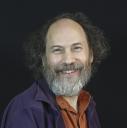Will Artificial Intelligence Be the End of Civilization, or the Beginning?


Boston Chapter of the IEEE Computer Society and GBC/ACM
7:00 PM, Thursday, 4 December 2025
MIT Room 32-G449 (Kiva) and online via Zoom
Will Artificial Intelligence Be the End of Civilization, or the Beginning?
Henry Lieberman, MIT Computer Science and Artificial Intelligence Lab
and Christopher Fry, MIT Media Lab, Sloan, IBM, startups (Retired)
Please register in advance for this seminar even if you plan to attend
in person at
https://acm-org.zoom.us/webinar/register/4417630642043/WN_FKvNEH5NQAO5nz...
After registering, you will receive a confirmation email containing
information about joining the webinar.
Indicate on the registration form if you plan to attend in person.
This will help us determine whether the room is close to reaching
capacity. We plan to serve light refreshments (probably pizza) before
the talk starting at around 6:30 pm. Letting us know you will come in
person will help us determine how much pizza to order.
We may make some auxiliary material such as slides and access to the
recording available after the seminar to people who have registered.
Abstract:
Popular press articles whipsaw the public between two starkly
different views of Artificial Intelligence. On one hand, AI is
presented as a magic genie that can solve all of our problems with
superhuman intelligence. On the other hand, it's presented as an
unprecedented threat to humanity, with the danger of loss of jobs,
loss of privacy, automated discrimination, even some kind of "robot
rebellion". No wonder the public is confused. Which is it?
We present a view that is different from both the self-interested
promotion of the tech companies, and from the pessimism of the social
critics. Believe it or not, the biggest value of AI will lie, not in
simply improving the operations of today's industry and government,
but in making it possible to have a more cooperative, less competitive
world.
Our view is:
• Optimistic. Mitigating possible dangers of AI in today's society is
important. But we don't want to let fear cause us to miss the
potential for AI to tackle big problems people now think are
intractable: war, poverty, climate, etc.
• Radical. Many tech boosters imagine simply pouring AI into today's
economy and electoral politics. We think these systems need to be
redesigned from scratch for the AI era. We have two concrete
proposals: Makerism (economics) and Reasonocracy (governance).
• Original. Not conventionally Left or Right, though our ideas share
some design goals with both sides. Not (yet) heard on mainstream or
activist media.
About the speakers:
Henry Lieberman is a Research Scientist in the InfoLab group at MIT's
Computer Science and Artificial Intelligence Lab (CSAIL). His career
started at the original MIT AI Lab in the 1970's, with Marvin Minsky
and Seymour Papert, and he was head of the Software Agents Group at
the MIT Media Lab. He pioneered real-time memory management, prototype
object systems, and Programming by Example. He works at the
intersection of AI and HCI, and was twice program chair of the ACM
Intelligent User Interfaces conference. He served a term on the AAAI
Executive Committee. He has a BS in math from MIT, and an HDR (PhD
equivalent) from the Sorbonne in Paris, where he was also a visiting
professor. He has about 120 publications and four books.
Fry moved to Boston in 1973 to attend Berklee College of Music (the
MIT of Jazz). Realizing his musical skills needed augmentation, he
moved across the river to MIT (The Berklee of Computers). He’s worked
at BBN, IBM, MIT’s Experimental Music Studio, MIT Sloan (Business)
School, MIT Media Lab, and a host of start-ups. He’s written languages
for music composition, general purpose computing, decision support,
and robotics. He also works on Personal Rapid Transit, an innovative
"packet-switched" transportation network.
Directions to 32-G449 - MIT Stata Center, 32 Vassar Street, Cambridge,
MA: Please use the main entrance to the Stata Center at 32 Vassar
Street (the entrance closest to Main street) as those doors will be
unlocked. Upon entering, proceed to the elevators which will be on the
right after passing a large set of stairs and a MITAC kiosk. Take the
elevator to the 4th floor and turn right, following the hall to an
open area; 32-G449 will be on the left. Location of Stata on campus
map
This joint meeting of the Boston Chapter of the IEEE Computer Society
and GBC/ACM will be hybrid (in person and online).
